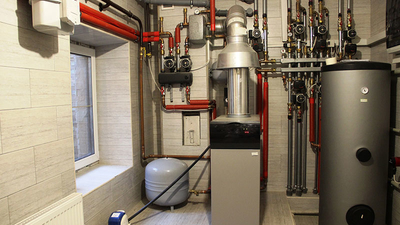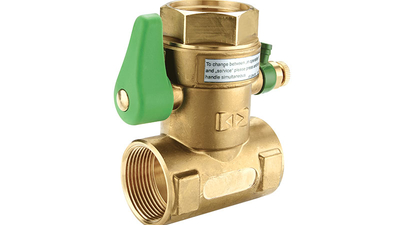Prevent legionella from breeding in dead legs of the pipework

Stagnant water in plumbing and heating systems can lead to some serious health hazards. One of the most dangerous is the growth of Legionella bacteria that can cause Legionnaires disease, which has symptoms similar to those of COVID-19. In this blog, we’ll explain where water can stagnate in commercial systems and measures to prevent legionella from breeding in dead legs of your pipework.
Where in the pipework is Legionella most likely to breed?
Legionella is likely to breed in stagnant water ranging between 20°C – 45°C, the bacteria becomes dormant below 20°C and does not survive above 60°C. The chances of bacterial growth are even higher in poorly designed plumbing and heating systems or in a building, or a part of a building, that isn’t used regularly.
Commercial or public buildings that weren’t being used during the lockdown are therefore at a high risk of Legionnaires outbreak. You can find information on how to thermally flush a system if it hasn’t been used for a while in our latest blog ‘Legionella after Lockdown Part 1: Flushing the System’.
Another area where water can stagnate and allow Legionella to multiply even when the system is in use, is the dead legs* of pipework. This issue is primarily common in commercial expansion vessels that are attached to boilers and cylinders.
* The term ‘dead legs’ is typically used to describe a run of pipe that is no longer in use or has become isolated from the regular flow of water. The NHS further defines this within their HTM04-01 document as ‘low use areas’.
Why does water stagnate in commercial expansion vessels?
In large commercial buildings and healthcare facilities, like hospitals, gyms, leisure centres and hotels, water is constantly circulating at a high temperature. This is to facilitate instantaneous hot water to outlets like taps and showers. The boiler and hot water cylinders are constantly running in such buildings due to the size of the network, and to circulate hot water around the system and maintain disinfecting temperature.
This continuous flow of hot water leads to thermal expansion in the hot water networks and heating systems, creating increased pressure in the pipework. But this expansion doesn’t build up, because commercial outlets are regularly used.
However, this is not the case for heating networks. Usually, an expansion vessel is fitted on the return pipework to the boiler. This ensures that the thermal expansion in the circuit is accounted for.
Thermal expansion considerations are also applied to the cold supply that feeds the hot water cylinders. This is because water at ambient temperature begins to warm the cold supply when it’s not in use, causing expansion in the pipework. Potable expansion vessels are generally fitted to deal with this issue. The water stored in these vessels is prone to stagnation and creates a dead leg, making them a major breeding ground for Legionella bacteria. If appropriate measures aren’t taken to prevent this issue, it can potentially contaminate the entire cold water network.

Anti-Legionella Valves can prevent water stagnation in commercial expansion vessels
To prevent stagnation in expansion vessels, it is recommended that WRAS approved Anti-Legionella Valves are installed along with the vessel. And to ensure optimum performance they must be annually serviced.
Specially designed to maintain water circulation with a standard single connection to the expansion vessel, this valve diverts a portion of the flow into the vessel and continually renews the water content. This makes it difficult for Legionella bacteria to breed.
The Anti-Legionella Valve is an alternative to installing a flow through expansion vessel. These are often bulky, and in retrofit applications, can become a logistical nightmare. But with the Anti-Legionella Valve, you can continue to use your existing potable expansion vessel. Replacing any flexible hoses, this valve is designed to be installed directly between the cold feed and expansion vessel via the tee and vessel connection.
The Reliance Valves’ WRAS certified Anti-Legionella Valves also include a rotatable tee-piece and an integral isolating valve to allow for quick, easy and flexible installation. This valve can be used on any standard vessel with a 3/4″ connection or larger vessels with 1 1/4″ connections.

Keeping our water supplies safe
Keeping our water supplies safe for use is vitally important, as contamination can lead to serious health hazards. This is especially crucial when we are fighting a global pandemic.
Legionella growth can cause a major disruption in the operation of several commercial, public use and healthcare buildings. For hospitals, it could also result in the water supply being drained, which could put vulnerable people at risk. For businesses, it means they will need to flush and drain their systems, leading to gallons of water lost, along with a huge cost and impact on their operations.
At RWC, we are with you all the way to ensure the safe delivery and storage of water. If you are working on the installation or specification of commercial boilers or hot water cylinders and have any questions about Anti-Legionella Valves or other pipes, valves and fittings, please get in touch with our team of experts who are happy to support and provide advice.
Discover more
View our high performance Anti-Legionella Valves that prevent Legionella from breeding in cold water systems.
